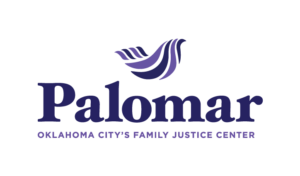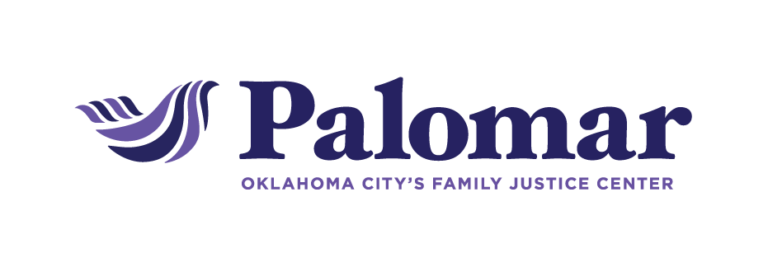The Oklahoman: Coronavirus in Oklahoma: Isolation measures leading to increase in domestic violence
By Joe Mussatto
Published: April 13, 2020
Click here to read the story!
Local agencies that help victims of domestic violence are expanding their services at a time when isolation measures intended to slow the spread of the coronavirus might unintentionally be facilitating domestic abuse.
Domestic-related 911 calls the first week of April were up 16% compared to the same week a year ago, according to the Oklahoma City Police Department. Domestic-related arrests for the same week were up 21% compared to last year.
“There’s a lot of fear and uncertainty that everyone has,” said Kim Garrett, CEO and founder of Palomar. “If you’re already in a violent home where there’s issues of power and control, this can escalate it. … People feel like they’re losing their jobs. They feel like their own lives are out of control.”
Palomar, Oklahoma City’s family justice center, is a collection of agencies that offer services to victims of domestic violence, sexual assault, stalking, elder abuse and human trafficking.
Palomar outlines on its website that domestic violence is a crime of isolation. Abusers can use isolation as a tactic to control their victims and to restrict them from seeking help from family and friends. The coronavirus pandemic has only made that tactic easier.
Antonio Guterres, secretary-general of the United Nations, recently called on governments to “put women’s safety first” as they respond to the pandemic. Guterres described a “horrifying global surge in domestic violence” related to COVID-19 lockdowns.
Four in five victims of intimate partner violence are women, according to Bureau of Justice statistics. Women ages 18 to 34 experience the highest rates of violence. One in four women in the U.S. experience intimate partner violence.
Garrett said the number of victims contacting Palomar is up 13% compared to this time last year.
“We’ve had to pivot to the times and get creative,” she said.
Palomar installed a Ring video doorbell so clients can walk up to its building and virtually connect with on-site resources. Instead of closing at 5 p.m., Palomar is offering virtual hours through 7:30 p.m. on weekdays. A lending library in front of the building has been converted into a food pantry.
Palomar also has opened a texting line.
“When you think about domestic violence dynamics, it may be easier for a victim to sneak into a bathroom and text us than it would be for them to come in, even pre-COVID,” Garrett said. “I’m actually really excited that this can give survivors more forums to communicate and get help whereas they might not have previously.”
Palomar works in conjunction with several partners, including the Oklahoma City Police Department and the YWCA.
The YWCA provides housing and food to domestic violence victims on a short-term emergency basis.
While Palomar is receiving more calls than usual, the YWCA and similar programs across the state have seen a decrease or stagnancy in calls to their hotlines, according to Brandon Pasley, senior director of specialized training at YWCA Oklahoma City.
A decrease in hotline calls combined with an increase in 911 calls is counterintuitive, Pasley explained, because victims are typically less likely to contact law enforcement.
“So the fact that things are escalating to the point where we’re seeing an increase there,” Pasley said, “is pretty telling of how dangerous this situation can be.
“Stress does not cause domestic violence. However, in the context of domestic violence and abuse, those stressors exacerbate abusive behaviors that are already there. They add fuel to the fire. We may be seeing an increase in domestic violence incidents that escalate to the level of law enforcement involvement.”
Another theory that surfaced in a Thursday meeting with the Oklahoma Coalition Against Domestic Violence & Sexual Assault is that victims are uncertain about which services are currently open.
“People need to know that we’re here,” Pasley said. “Even if you don’t want to come to shelter, even if you can’t leave right now, at the very least we’re available by phone.”
Garrett said there are still ways to seek help even though the methods have changed.
“Check in with people who might be at a high risk,” she said. “Try to connect them with resources if they’re interested. Reach out for help if you need it. Agencies are still here and working harder than ever to ensure that clients get the services they need.”
How to get help
Domestic violence victims can reach Palomar at 405-552-1010. The 24-hour safeline is 1-800-522-7233. If you or someone you know is fleeing domestic violence, call the YWCA hotline at 405-917-9922.


